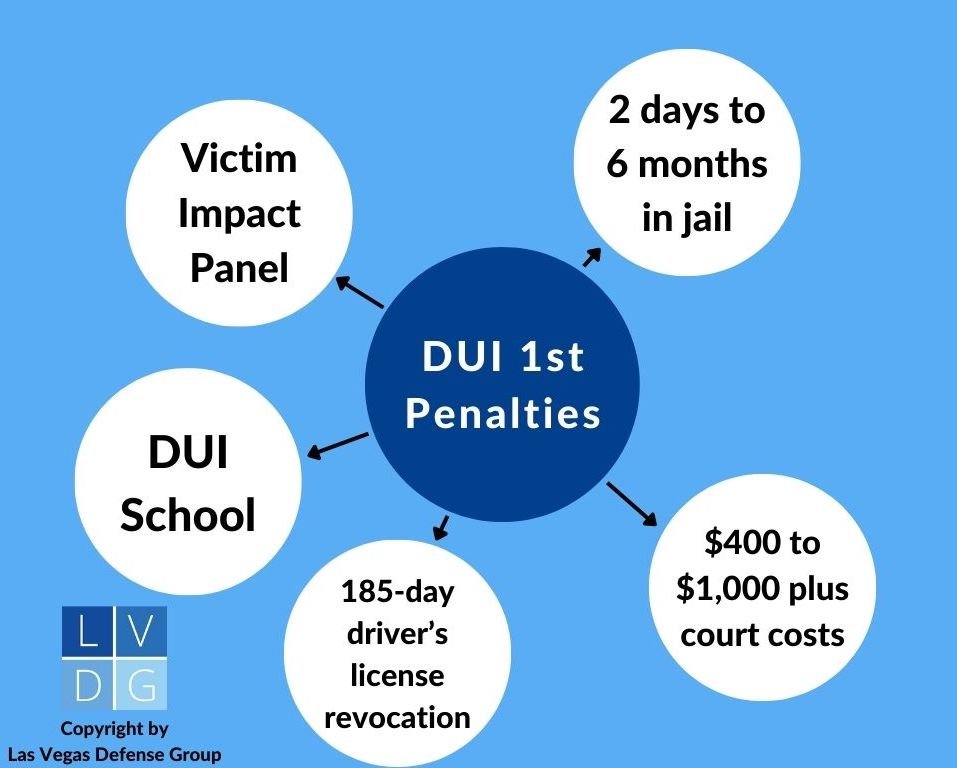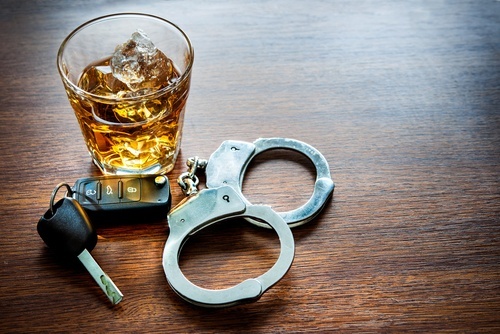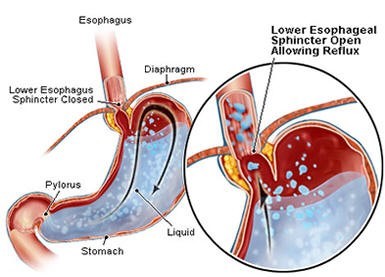A 1st-time DUI in Nevada is a misdemeanor offense punishable by
- 2 days to 6 months in jail or 48 to 96 hours of community service,
- fines of $400 to $1,000 plus court costs,
- a 185-day license revocation,
- DUI school and
- a victim impact panel.
These penalties are shown in the below bubble graph. Judges usually suspend the jail sentence and let you drive with an ignition interlock device if you take a plea.

For you to be convicted of a DUI-first in a municipal- or county court in Las Vegas or throughout Nevada, the prosecutor has the burden to prove the following elements beyond a reasonable doubt:
- Your driving was impaired to any degree by alcohol or drugs; or
- Your blood alcohol content was at least 0.08% when you were driving; or
- Your blood alcohol content was at least 0.08% within two hours of when you stopped driving; or
- Your blood contained more than the legal limit of certain prescription drugs.
In this article, our Las Vegas DUI defense attorneys answer four key questions about dealing with a 1st DUI charge in Nevada:
- 1. Can I go to jail?
- 2. Do I lose my license?
- 3. Can a defense attorney help?
- 4. Can a DUI-1st be dismissed?
- Additional Reading
1. Can I go to jail?
A first-offense DUI in Nevada carries 2 days to 6 months in jail, though judges usually count the arrest and initial incarceration as two days credit for time served. If you bailed out before the two days were up, the judge may order you to complete 48 to 96 hours of community service.1
A DUI first is a misdemeanor in Nevada. In addition to a 2-day to 6-month jail sentence, the penalties include:
- Fines of $400 to $1,000 plus court costs
- DUI School (an 8-hour online course)
- Victim Impact Panel, such as a MADD lecture
- 6-month suspended jail sentence that you serve only if you do not stay out of trouble or complete the other sentencing terms 2
- SR-22 insurance for 3 years
- 185-day driver’s license revocation3
- Ignition interlock device (IID) in your car for 6 months4 (at your expense)5
Note that if you were transporting a child under 15 at the time of your DUI arrest, the judge is more likely to impose some jail time.6
If you have prior DUIs
Nevada DUI penalties get harsher with each successive conviction; however, any misdemeanor DUI convictions you have from more than seven years ago will not count as “priors” in Nevada.7
Meanwhile, all your misdemeanor DUI convictions within the last seven years – whether in Nevada or other states or U.S. territories – do count as “priors.”
Example: Emily was convicted of a misdemeanor DUI in Nevada 20 years ago and another misdemeanor DUI in California 5 years ago. If she were to pick up a new DUI in Nevada, the D.A. would charge her with a DUI 2nd. This is because her DUI from 20 years ago falls outside Nevada’s 7-year washout period. Only the one from 5 years ago would count as a “prior.” The fact it occurred outside of Nevada is irrelevant.
If you have a prior felony DUI conviction, your next DUI arrest will be prosecuted as a felony even if there were no injuries or if the prior felony DUI occurred more than seven years ago. In Nevada, they say, “Once a felon, always a felon.”8
If your BAC was 0.18% or higher
If your blood alcohol concentration (BAC) was 0.18% or greater at the time of the alleged DUI, you face additional penalties:
- An alcohol/drug dependency evaluation (Assessment Program), which costs $100,
- An alcohol or drug abuse treatment program (depending on the results of the evaluation), and
- 1 to 3 years of keeping an IID in your vehicles.9

First-time DUIs in Las Vegas can be sealed from your record seven years after the case ends.
2. Do I lose my license?
First-time Nevada DUIs trigger a 185-day driver’s license revocation.10 However, you can apply to the DMV to continue driving with an ignition interlock device in your car during the revocation period.
You can contest your license revocation at a DMV hearing, an administrative trial separate from your criminal case. You have only seven days after your arrest to request this hearing unless you consented to take the blood test; in that case, that seven-day clock begins running a few weeks later when the DMV mails you a notice that your blood came back positive for DUI.11
DMV hearings are much harder to win than criminal trials. Whereas prosecutors in criminal court have to prove your guilt beyond a reasonable doubt, the DMV can revoke your license after finding only “some evidence” that you were under the influence – this is a low burden of proof.12
Note that even if you win the DMV hearing, the DMV will still revoke your license if you then get convicted of DUI in criminal court. The only way to avoid a license revocation is to win both the DMV and criminal cases.13
3. Can a defense attorney help?
Here at Las Vegas Defense Group, we have represented literally thousands of people arrested for first-time DUIs. In our experience, the following three DUI defenses are very effective with prosecutors, judges, and juries.
1. The police did not administer your field sobriety tests correctly
The National Highway Transportation Safety Administration (NHTSA) outlines detailed procedures that police must use to explain, administer and score the following field sobriety tests:
- Horizontal gaze nystagmus test (following a stimulus with your eyes),
- One leg stand test, and
- Walk and turn test.14
Police officers often lack NHTSA training and make critical mistakes when giving instructions and rating your performance. If we can invalidate the field sobriety test results in your case, the D.A. may have insufficient evidence to prosecute.
2. Your physical condition caused an inaccurate BAC result
Many physical and medical conditions can cause an Intoxilyzer 8000 EN breathalyzer to register falsely high BAC numbers. Just some of these include:
- GERD
- Acid reflux
- Heartburn
- Mouth alcohol
- Diabetes
- Hypoglycemia
- Low-carbohydrate diet
- Auto-brewery syndrome
- Dentures or other orthodontic devices15
In these situations, we would compile your medical records and seek expert medical testimony about how your condition can inflate BAC results. This may leave the prosecutor with too weak a case to sustain a conviction.
Note that the breath test equipment itself may be faulty or defective. In all our DUI cases, we check to see when the breathalyzer was last calibrated, how old the chemicals it uses are, and whether the person who last ran maintenance on it was still certified themself. Sometimes we can get DUI charges dropped based on broken chemical testing apparatuses.
3. The police lacked probable cause to arrest you
In order to pull you over, the police need reasonable suspicion that you are breaking the law. Then, to arrest you, they need probable cause to believe you did break the law.16
We find that in many cases, police are just “going through the motions” and arrest drivers who passed their field sobriety tests and were not exhibiting signs of intoxication. We rely on the police’s own dashcam and bodycam video to show all the ways that they broke protocol and misread the signs.
If the D.A. sees we have a strong argument that the police made a false arrest, they may be willing to drop the case.

Medical conditions like GERD can cause falsely high BAC levels on a breath test.
4. Can a DUI-1st be dismissed?
Nevada law prohibits prosecutors from offering a charge reduction or dismissal in DUI cases unless a guilty verdict is obviously unattainable.17 Therefore, our job is to convince the prosecutors that their evidence is too inadequate and unreliable to sustain a conviction.
Typical evidence we rely on in drunk driving cases includes the police report, eyewitnesses, surveillance video, medical records, and expert forensic testimony.
Getting DUI charges reduced to reckless driving
If the D.A. will not dismiss your case outright, the next best and more common scenario is for them to reduce your drunk driving charge to reckless driving.18 Prosecutors typically agree to this when the total evidence indicates that you were guilty, but the police made a procedural mistake such as administering your breath- or blood test slightly after the two-hour post-arrest window.19
Having a reckless driving conviction carries less social stigma than having a drunk/drugged driving conviction. Prospective employers are also less likely to pass you over for a job.
Note that if you are suffering from alcoholism or drug addiction, you may be eligible for Misdemeanor DUI Court (aka the Moderate Offenders Program). Upon your successful completion of rehabilitation, the court may reduce your DUI to reckless driving.
DUI Court usually lasts one ear and costs thousands of dollars. You are required to participate in counseling, submit to court monitoring, be available for alcohol/drug testing, and wear a SCRAM anklet, plus other terms.20
Fighting for an acquittal at trial
You always have the option of going to trial, where prosecutors have the high burden of proving beyond a reasonable doubt that either:
- You were driving impaired (to any degree) by drugs or alcohol, or
- Your BAC was 0.08% or higher at the time of driving, or
- Your BAC was 0.08% or higher within two hours of driving, or
- Your blood had more than the maximum amount allowed for certain drugs.
Since first-time drunk driving cases are only misdemeanors, you are entitled to just a bench trial (where the judge decides the verdict) and not a jury trial.21 In practice, juries are more likely than judges to find defendants not guilty.
Additional Reading
For more information on Nevada DUI laws, see our related articles:
- Third-time DUI penalties – an explanation of the felony punishments for a third DUI in seven years
- Nevada DUI penalties – a general overview of drunk driving sentences
- What is the difference between DWI and DUI in Nevada? – this discusses how there is no DWI in Nevada like there is in other states
- DUI causing injury or death – an in-depth look at how even a first-time DUI becomes a felony if it caused a serious injury or death
- DUI of drugs (DUID) – an overview of how driving under the influence of drugs carries the same punishments as drunk driving; also covers DUI of prescription drugs or DUI of marijuana
- Chemical test refusals – a list of penalties for refusing to take the breath or blood test following a DUI arrest, and how police must get a telephonic search warrant before taking your blood
- Underage DUI – an explanation of what under-21 drivers can expect if they get arrested while impaired by alcohol or drugs
- Boating under the influence – discussion of how drunk boating on Lake Mead and other waterways in Nevada is punished similarly to driving drunk on roadways
Legal References:
- NRS 193.150.
- NRS 484C.400. NRS 484C.010. If you plead guilty (or no contest) to 1st offense of operating a motor vehicle under the influence in Nevada, the court will require that you sign an “admonishment of rights” form. (Click click here for an example.) This document outlines how driving under the influence is a “priorable” crime, meaning that the punishments get greater with each successive conviction.
- SB 259 (2017); NRS 483.460.
- Id.
- Id.
- NRS 484C.400; in legalese, driving intoxicated with a child is an “aggravating factor” that judges consider when deciding the defendant’s sentence.
- Id. See also, What happens when you get a DUI?, Las Vegas Sun (September 6, 2015).
- NRS 484C.410.
- See note 7.
- SB 259 (2017); NRS 483.460.
- NRS484C.230; NRS 483.460.
- See Nevada DMV License Suspensions and Revocations. See Beavers v. Department of Motor Vehicles & Pub. Safety, (1993) 109 Nev. 435, 851 P.2d 432; see Wright v. State DMV, (2005) 121 Nev. 122, 110 P.3d 1066; NAC 483.8485; NRS 484C.220.
- NRS 484C.230.
- See Impaired Driving, NHTSA.
- See Challenges and Defenses II, The National Traffic Law Center.
- State v. Sample (2018) .
- NRS 484C.420.
- NRS 484B.653.
- NRS 484C.430.
- NRS 484C.330.
- Sixth Amendment.

